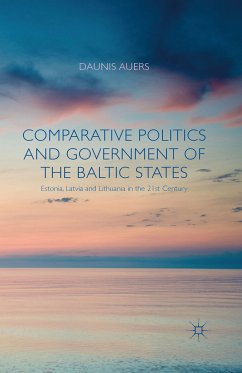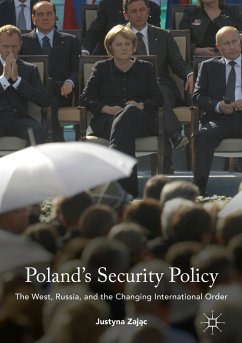
Comparative Politics and Government of the Baltic States (eBook, PDF)
Estonia, Latvia and Lithuania in the 21st Century
Versandkostenfrei!
Sofort per Download lieferbar
88,95 €
inkl. MwSt.
Weitere Ausgaben:

PAYBACK Punkte
44 °P sammeln!
This book traces the development of the political institutions, electoral systems, parties, civil society, economic and social policies and foreign affairs of the three Baltic states of Estonia, Latvia and Lithuania over the last quarter century.
Dieser Download kann aus rechtlichen Gründen nur mit Rechnungsadresse in A, B, BG, CY, CZ, D, DK, EW, E, FIN, F, GR, HR, H, IRL, I, LT, L, LR, M, NL, PL, P, R, S, SLO, SK ausgeliefert werden.












